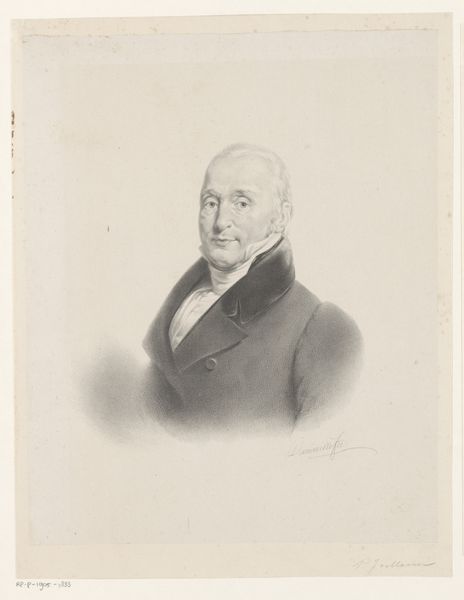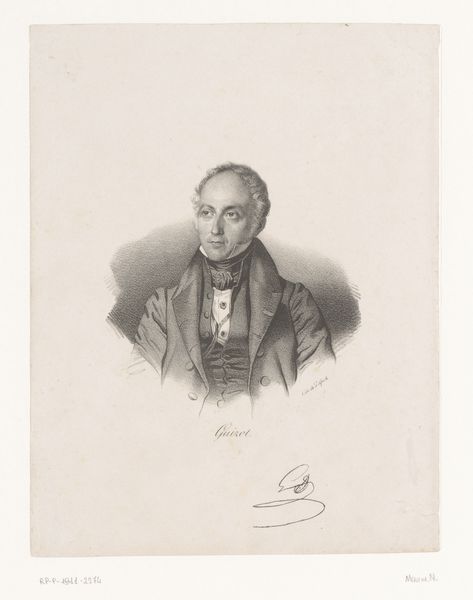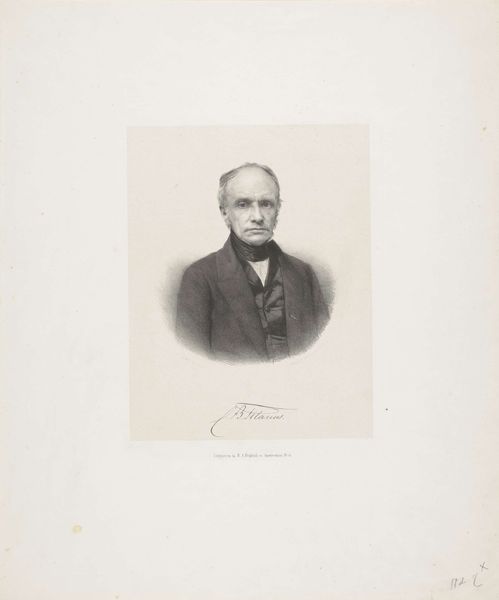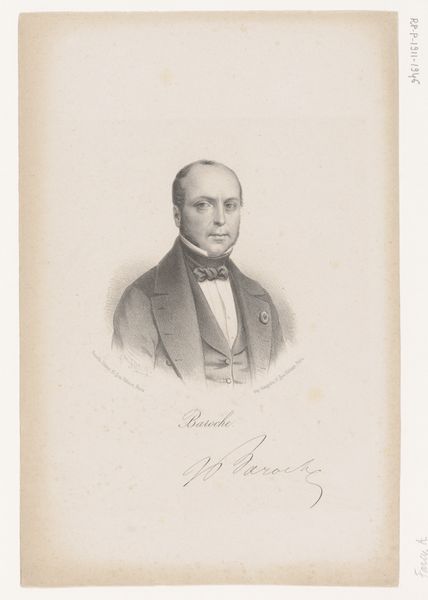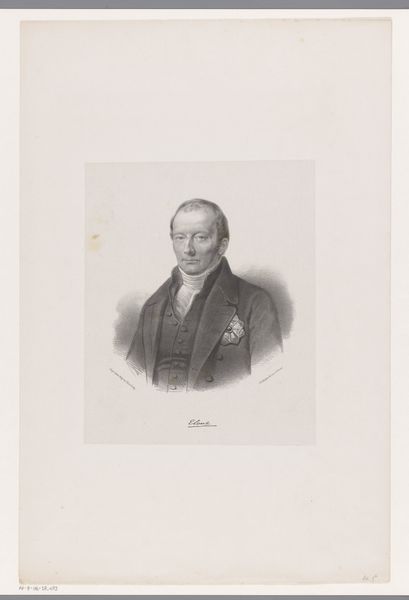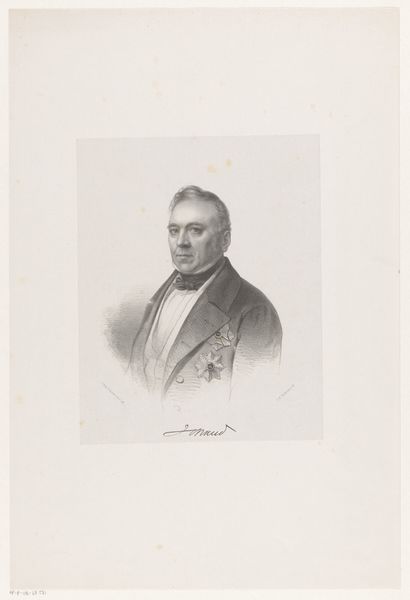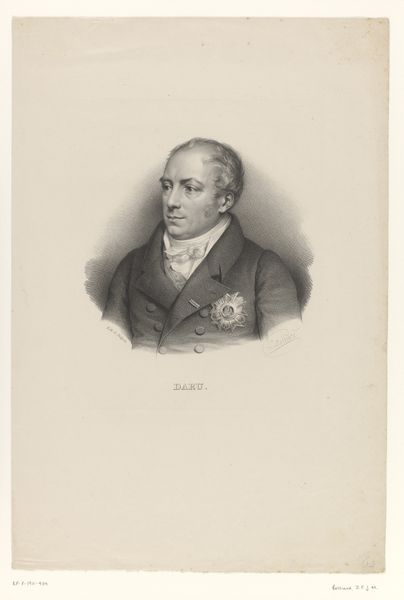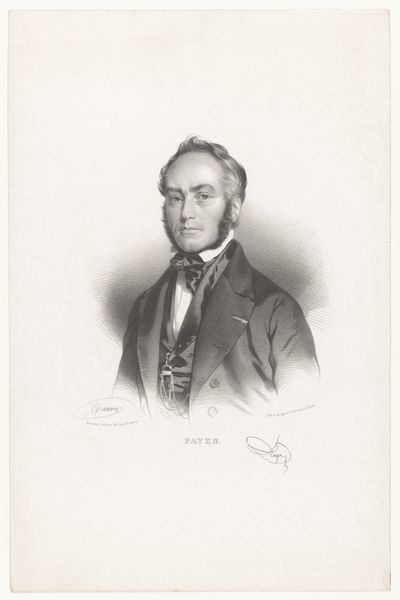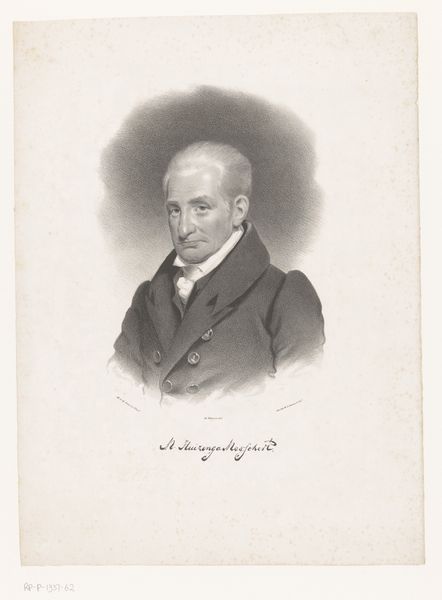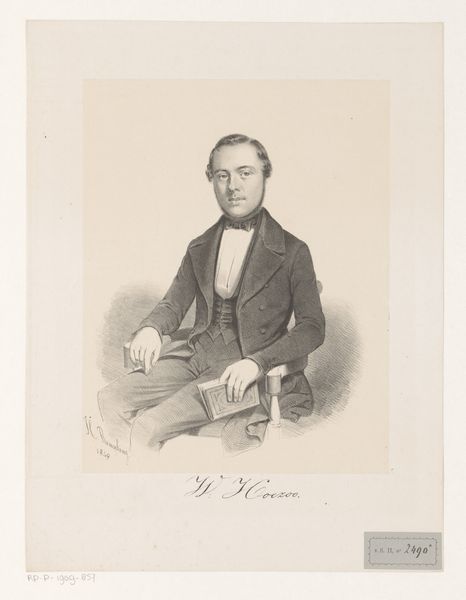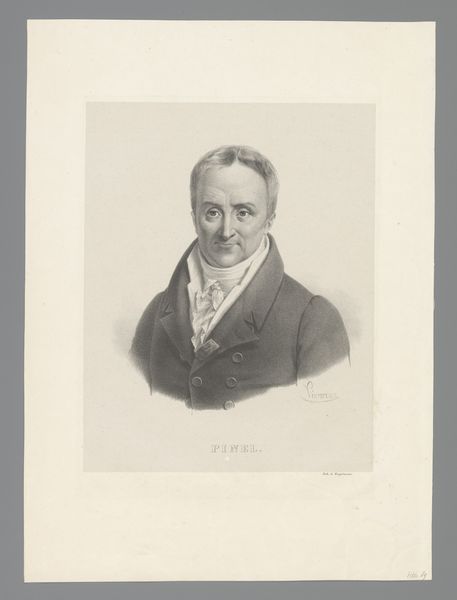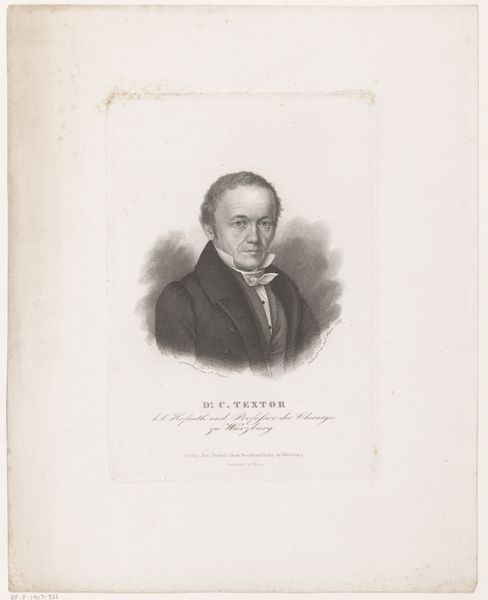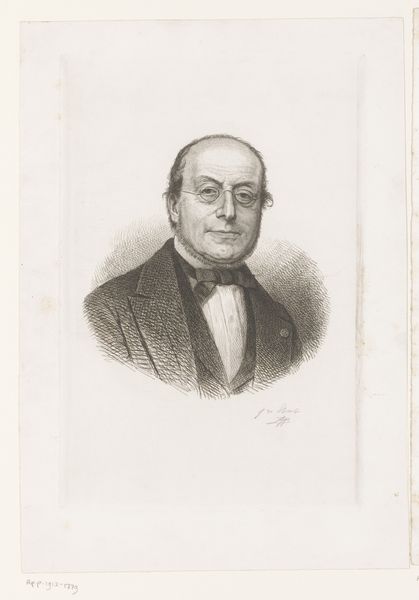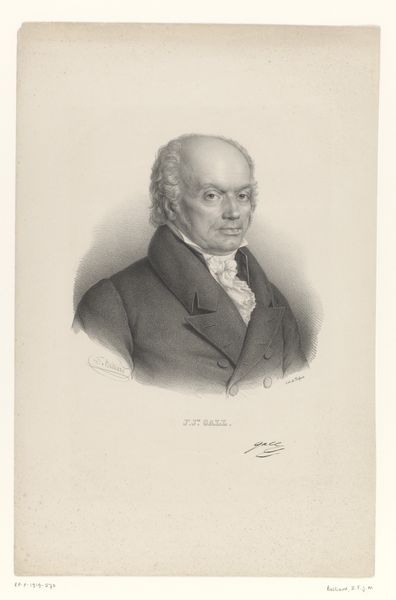
drawing, graphite
#
portrait
#
pencil drawn
#
drawing
#
pencil sketch
#
caricature
#
portrait reference
#
pencil drawing
#
romanticism
#
graphite
#
portrait drawing
Dimensions: height 358 mm, width 275 mm
Copyright: Rijks Museum: Open Domain
Zéphirin Belliard created this print of psychiatrist Guillaume Marie André Ferrus using lithography, a printing process that democratized image-making in the 19th century. Lithography relies on the simple principle that oil and water don't mix. The artist draws an image on a flat stone or metal plate with a greasy crayon, then wets the surface. Ink adheres only to the greasy areas, allowing for multiple impressions. The resulting print has a soft, almost velvety texture, quite different from the sharp lines of an engraving. Look closely, and you'll see the subtle gradations of tone that Belliard achieved, capturing the likeness of Ferrus. This was a relatively quick and inexpensive way to produce images, which meant that portraits like this one could circulate widely. Lithography allowed for images to be consumed by a broader audience. By focusing on the processes and context of its making, we can appreciate how lithography brought art into the sphere of everyday life, blurring the lines between fine art and popular culture.
Comments
No comments
Be the first to comment and join the conversation on the ultimate creative platform.
